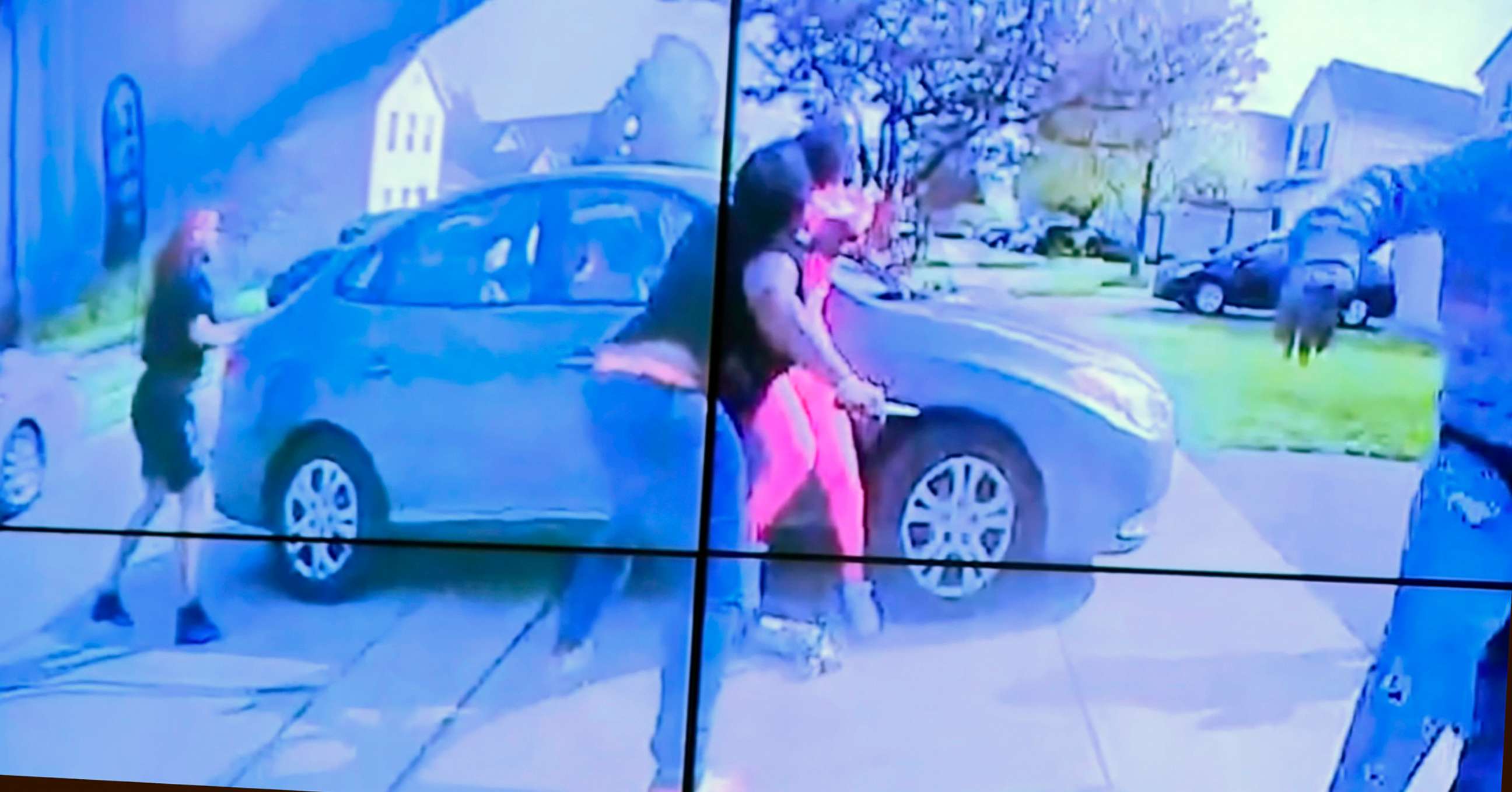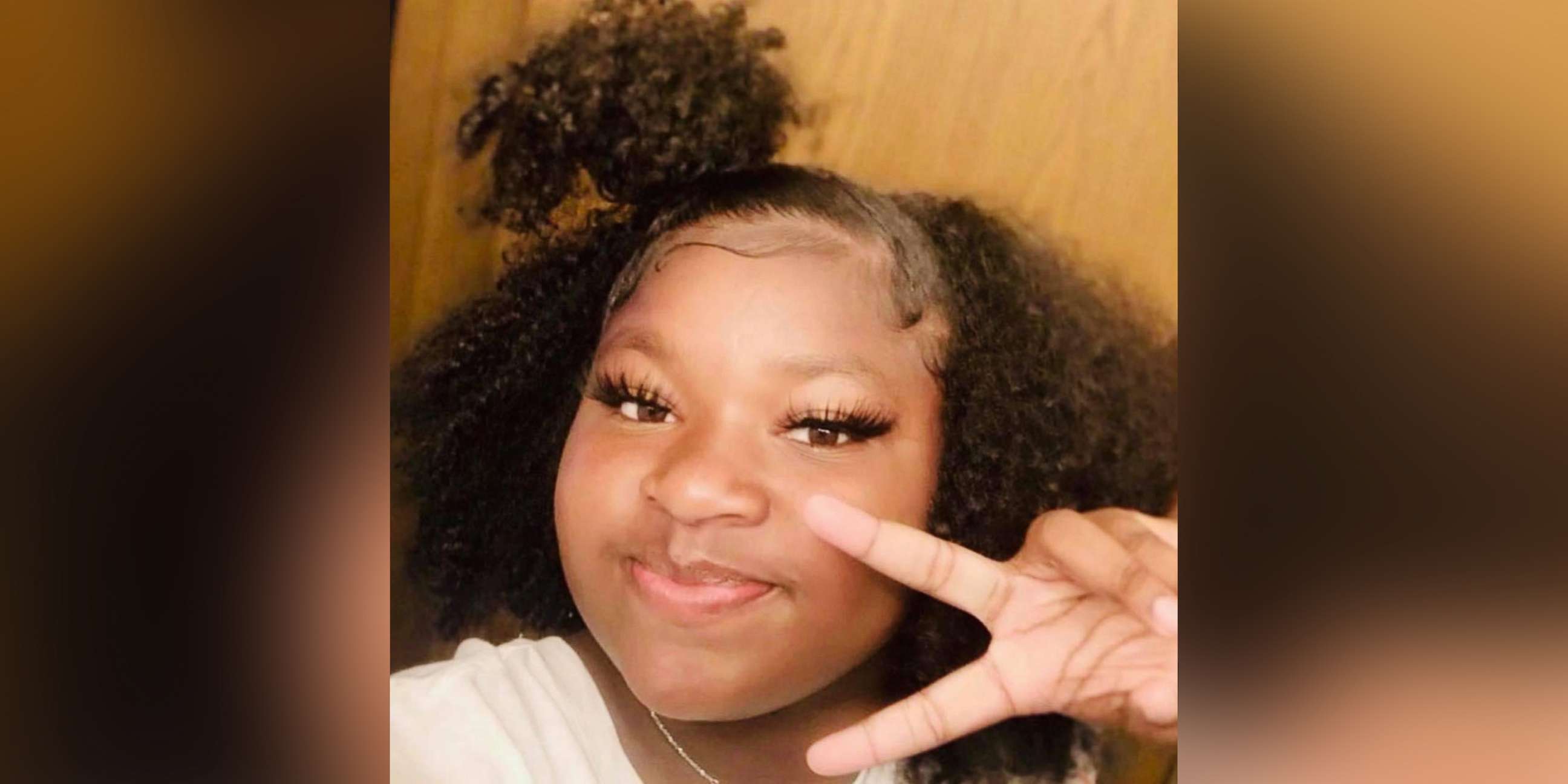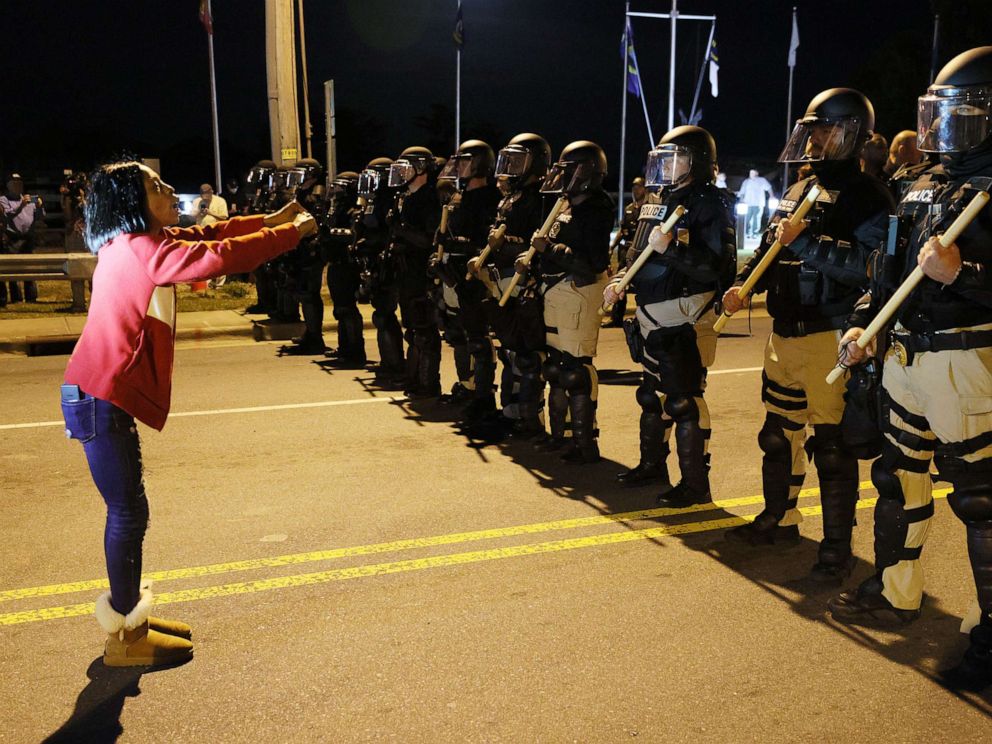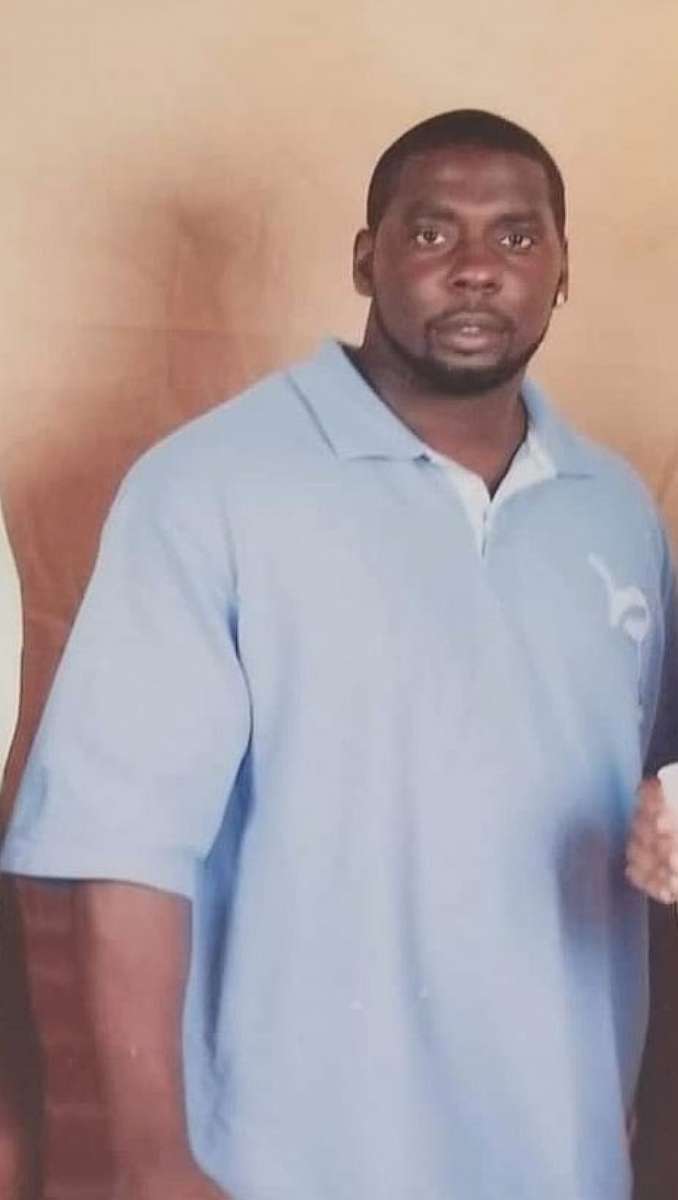Why bodycam footage is released quickly sometimes -- and sometimes not at all
Fatal officer-involved shootings in Ohio and North Carolina show two scenarios.
Disparate responses to law enforcement shootings of a Black man and a Black teenager within 24 hours of each other demonstrate the conflicting need for transparency and privacy and the sometimes murky policies at play behind releasing body camera footage to the public.
On the afternoon of April 20, a police officer shot 16-year-old Ma'Khia Bryant in Columbus, Ohio. Within hours of the incident, the Columbus Division of Police publicly released footage from the officer's body camera, with more footage following.
The next morning, over 600 miles away, deputies shot Andrew Brown Jr., 42, in Elizabeth City, North Carolina. A week after the shooting, a judge ruled that the footage won't be released publicly and that only Brown's family will have access to view it.
In both incidents, the release of the footage captured by officers' body cameras was contingent on current state statutes governing the technology. State laws vary widely on when and how the public may have access to bodycam footage, as demonstrated by legislation trackers from the Urban Institute, the Reporters Committee for Freedom of the Press and the National Conference of State Legislatures (NCSL).

Laws governing the release of body camera data are likely aligned with states' preexisting public records laws, Nancy La Vigne, executive director of the Council on Criminal Justice's Task Force on Policing, told ABC News.
"Some are really big sunshine states, others less so," she said.
Generally, the statutes govern law enforcement's ability to withhold data and information, La Vigne said, considering factors such as whether an investigation is in progress, if consent is needed from innocent parties or victims captured on the footage or if the video needs to be redacted to protect those featured.
"The original goal of body cameras was to enhance transparency. Theoretically, you would think that that means that the footage that's captured on cameras would be released. However, that's been very uneven across the country," La Vigne said, noting that some states have lately tried to be "more prescriptive" over that release.
Public record in Ohio
In Ohio, police body camera footage is public record -- with several stipulated exceptions -- under a law that went into effect in 2019. Other states, including Connecticut, Nevada, North Dakota, Oklahoma and Texas, also treat the footage as public record, according to the NCSL.
Footage that may be restricted in Ohio includes depictions of children, nudity, protected health information, crime prevention tactics, personal information or conversations not related to the law enforcement activity, information that could identify an alleged domestic violence or sexual abuse victim, and death -- unless it was caused by an officer.
The president of the Ohio News Media Association at the time of its passage championed the law, telling WOSU Public Media it "preserve[d] the presumption of openness that should be attached to all public records."

Upon releasing the footage of Bryant's shooting, which blurred the faces of juveniles, Columbus Mayor Andrew Ginther said that "transparency with the public is the utmost priority during this difficult time."
"It was done because the public deserves to know what happens," he said during a press briefing. "They needed to have this footage. … We know that having this footage increases accountability on both sides of the camera."
The National Fraternal Order of Police commended the agency's quick response, saying in a statement that it was a "demonstration of what police transparency looks like -- getting the facts out before the narrative can be distorted or disinformation takes hold in a community."
Not public record in North Carolina
In North Carolina, on the other hand, law enforcement agencies do not have the authority to release body camera footage. Under a law enacted in 2016, the footage is not public record and can only be released through court order.
Ann Webb, senior policy counsel for the ACLU of North Carolina, said the organization had concerns about the law when it was filed "because it so explicitly states that this footage is not a public record."
"In the context of police killing, we are absolutely with communities that prompt, timely presumption of release is the best policy to preserve accountability and transparency," she said.
Previously, there wasn't a clear process for releasing police footage in the state, and videos related to an officer's performance were kept confidential as part of their personnel file, according to Frayda S. Bluestein, professor of public law and government at the University of North Carolina at Chapel Hill.
"There wasn't really a good process for making them public," Bluestein told ABC News. "It was clear that we needed to have some specific way to deal with these kinds of records."

Several states, including Florida, Georgia, Illinois, Oregon and South Carolina, exclude body camera footage from open record requests, with some exceptions, according to the NCSL. Bluestein said she believes North Carolina is the only state where a court decides on the release of the footage.
"The good side of this, I think, is the court can be neutral," she said. "Sometimes it's helpful to have that third party who doesn't have a dog in that fight."
Judges may have to take into account privacy concerns of those depicted in the footage and how the release may impact an ongoing investigation into the incident, she said.
Anyone can petition the court for its release, allowing for a wide range of stakeholders to be included, Bluestein said.
Webb agreed that it's beneficial to have a third party involved, though she argued there are "major pitfalls" with the law -- one being that only law enforcement or the district attorney can speak at court proceedings on the release of the recordings.
"Other people depicted in the video do not have an explicit right to speak to the release or retention of the video," Webb said. "There's clearly a bias in the law toward law enforcement."
Under the state statute, the head of a law enforcement agency is allowed to show only "relevant" portions of footage to a person or representative of someone whose image or voice is recorded. That part of the law is a little "mushy" and is open to interpretation, Bluestein said.
In the case of Brown's shooting, family members and their attorneys said county officials offered them a 20-second clip of one bodycam video on Monday. The entire encounter between police and Brown lasted less than 20 seconds, the sheriff's office said. The faces of the deputies involved were blurred, as allowed under the statute, "to protect the ongoing investigation," the office said.
After the county sheriff and multiple media outlets petitioned to have the footage immediately released, a Pasquotank County Superior Court judge ultimately denied the request Wednesday amid the North Carolina Bureau of Investigation's probe into the incident. He said he would reconsider the request once the investigation is complete.
The judge also ruled that one of Brown's seven children should be allowed to see all of the footage in at least 30 days, to give investigators time to complete their probe, and ordered that all faces and other potentially identifying features such as badges and name tags be blurred out.

The existence of an internal or criminal investigation -- which is often the case with an officer-involved shooting -- "is a very common rationale for preventing release or significantly delaying the release of the video," Webb said.
"We've already seen that in Elizabeth City," she said. "The district attorney made it clear to the public that he wanted time before the video's release to conduct a more thorough investigation."
A more certain time frame
Some state lawmakers want to repeal North Carolina's body camera law. On Tuesday, several state House members filed a bill that would require law enforcement to release body-worn and dashboard camera recordings 48 hours after the incident upon request, unless the agency receives a court order sealing the recording for a set amount of time. The bill is identical to one filed earlier this month in the state Senate.
"Unlike our current law, these bills establish certainty about releasing such body camera footage," state Sen. Jay Chaudhuri, a bill sponsor, said at a press briefing Tuesday, adding that they would also "build trust" between citizens and law enforcement.
"Under current law, because there is no deadline or certainly that such footage will ever be released, it raises doubts between community members and law enforcement officials," he said. "We're witnessing that right now with the Andrew Brown tragedy."
The bills also shift the burden from the public, which currently has to request the footage, to law enforcement agencies, which would have to argue for its retention.
"We're asking a family in the middle of grief to then go and go through a court system?" state Rep. Amos Quick, one of the primary sponsors of the House bill, said at the briefing. "That seems to me callous. That seems to me very cold."
The Council on Criminal Justice's Task Force on Policing recommended in a policy assessment released this month that body camera policies should "outline how and within what time frame footage will be released to the public."
"In order for [body-worn camera] programs to boost transparency, footage of high-profile cases involving allegations of misconduct and excessive force needs to be publicly released promptly," the report stated.




